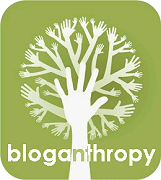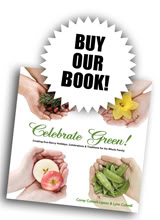3 question interview: Emily Main on Ocean Week
Happy Ocean Week!
What are you doing to celebrate? After all, ocean covers 71 percent of the Earth’s surface and contain 97 percent of the planet’s water. On the other hand, as you no doubt realize, oceans around the globe are in trouble. So how about celebrating Ocean Week by taking action on behalf of the fish who are vitally important to the health of the oceans—and to humans as well.
Maybe you already know that one-third of the world’s fisheries are currently in collapse, unable to regenerate their populations fast enough to keep pace with the rate at which they are being caught or killed.
So what’s the health-conscious environmentalist to do?
We spoke with Emily Main, editor at Rodale.com, about the challenges we’re facing when it comes to fish and what we as individuals can do about them.
1. We’re constantly being told that we need to eat more fish for our health. At the same time, we know that many of the world’s edible fish populations are on the brink of extinction. As consumers who care about our health and the health of the oceans, what 3 (concrete things) can individuals do?
- Download the Monterey Bay Aquarium’s “Super Green” fish list or their “Seafood Watch” smart phone app and eat only those fish that they recommend.
- If you can’t find any of those fish at your grocer, send them a letter/ask the fish monger to start carrying them. Grocery stores are becoming a lot more responsive to people’s concerns over seafood safety and sustainability, and they’re trying to cater to public demand. Target recently stopped carrying any farmed salmon and Walmart is in the process of transitioning its entire seafood selection so that all fish come from Marine Stewardship Certified-fisheries, which are among the healthiest and well-managed fisheries in the world.
- Eat at restaurants that serve “Super Green” fish, and don’t patronize restaurants that serve endangered or threatened fish. There’s a great website (small but growing) called Fish2Fork that lists restaurants that are good—serving only healthy, viable fish—and those that aren’t—serving threatened species like bluefin tuna and Chilean sea bass. Ask the waiter where your fish came from before ordering and if he or she (or the owner) can’t tell you, order something else. When people start asking for more information about what they’re eating, restaurants are going to be more conscientious about where their fish is coming from.
2. Aside from the fishing issue, what is the greatest threat to the health of our oceans and again, is there anything we as individuals can do to help? As Ted Danson told us in our interview earlier this week, climate change is seriously threatening the health of the oceans. The ocean has absorbed so much of the carbon dioxide that we’re pumping into the atmosphere that the water is becoming more acidic. That threatens the health of coral reefs (which support 25 percent of all ocean life) and the tiny plants and sea creatures that form the bottom of the food chain. When the bottom of the food chain starts to disappear, and we overfish the top of the food chain, the fish in the middle get squeezed.
To fix it…
-Switch to a green energy supplier, so you pump less CO2 into the atmosphere in your day-to-day life. Call up your utility and ask if you can purchase all or a portion of your electricity from solar, wind, geothermal or even hydroelectric power.
-Use less energy: Weatherize your windows and add insulation to your attic to keep heat and a/c from escaping; unplug any appliance that has a standby mode that uses power even when it’s turned off; unplug device chargers, which continue to draw energy even after a device is charged.
-Eat organic. Organic farming promotes healthy soil that actually sequesters carbon dioxide, which puts less pressure on our oceans to absorb it all. Chemical farming produces unhealthy soil that doesn’t have the same carbon-sequestering capabilities.
And visit Rodale.com tomorrow, when we will publish a more comprehensive list of things that everyone can do, no matter where they live, to protect the oceans.
3. We’d love to share with our readers, some organizations that are doing great work when it comes to ocean health and sustainability of fish populations.
Oceana (www.oceana.org) is the world’s largest marine conservation organization, and the Monterey Bay Aquarium has probably done more than any other group to raise awareness about healthy fisheries.
Here are a few others that we consult frequently:
The Surfrider Foundation
The Algalita Marine Research Foundation, which studies plastics in the ocean and its effect on wildlife
Sea Turtle Restoration Project
Defenders of Wildlife
Natural Resources Defense Council
Environmental Defense Fund
And here are some groups Ted Danson recommends in his book:
Blue Ocean Institute
The Ocean Conservancy
Pew Charitable Trusts: Oceans
Sea Around Us Project
World Wildlife Fund
Win a copy of Ted Danson’s book, Oceana! Rodale is giving away five autographed copies. To enter, send an email with first and last name, complete home mailing address (no P.O. boxes), daytime telephone number (including area code), date of birth and e-mail address to [email protected]. Put “Rodale.com Ocean Week Giveaway: Oceana” in the subject line. For Official Rules: Rodale.com Ocean Week Giveaway.
Lynn Colwell and Corey Colwell-Lipson are mother and daughter and authors of Celebrate Green! Creating Eco-Savvy Holidays, Celebrations and Traditions for the Whole Family, and founders of Green Halloween®.











 Twitter
Twitter
 LinkedIn
LinkedIn






